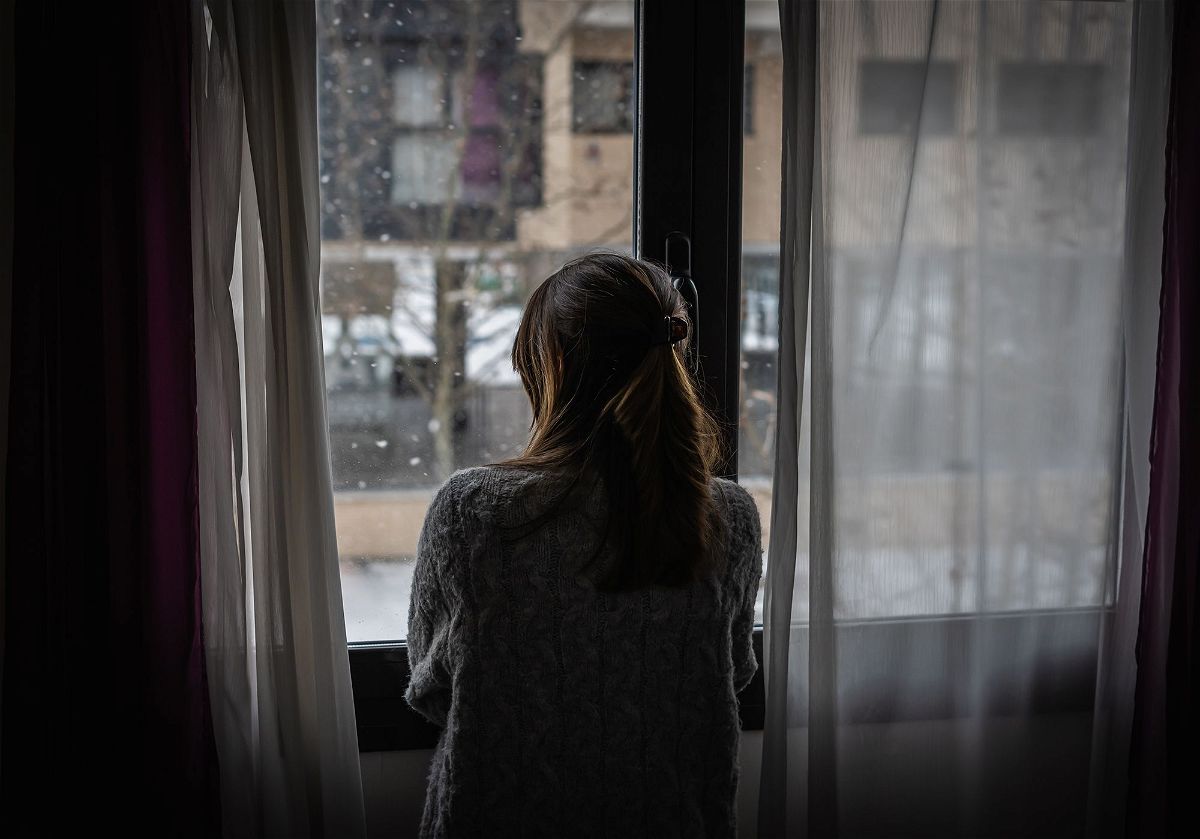Scientists edge closer to finding a biomarker for long Covid, which could lead to better tests and treatments

An estimated 6% of US adults have long Covid
By Brenda Goodman, CNN
(CNN) — People who have struggled to recover after Covid-19 often find that clinicians treat them like medical mysteries. Routine tests often don’t reveal that anything is amiss, so doctors sometimes wrongly assume that long Covid might be a form of depression or anxiety or is otherwise all in a person’s head.
Now, two small but very detailed studies are providing insights about the biology behind long Covid and, if reproduced, could point to potential biomarkers for the chronic condition, which affects an estimated 6% of all American adults or more than 15 million people, according to the latest data from the US Centers for Disease Control and Prevention.
Biomarkers are a holy grail of long Covid research because they would give scientists a way to objectively measure who has long Covid and whether they improve with an experimental treatment.
“This is some validation for the community that this isn’t just a bunch of people who are complaining a lot. There are biological differences between people who have persistent fatigue, cognitive issues and POTS, and I think that is important,” said Dr. Daniel Griffin, an infectious disease expert at Columbia University who treats patients with long Covid but was not involved in the new studies.
New clues from deep studies of blood
The first study, from researchers at Yale and Mount Sinai and published in Nature, compared blood samples from 273 people who fell into three primary groups: those who met strict criteria to be diagnosed with long Covid, those who had Covid-19 but fully recovered and people with no evidence of infection.
Researchers said people who enrolled in the study and had Covid-19 had mostly mild initial infections and on average had blood samples taken more than a year after they got sick. Study participants also answered detailed questions about their symptoms. The most common complaints for people enrolled in the long Covid group were fatigue, brain fog and memory deficits as well as postural orthostatic tachycardia syndrome, or POTS, which causes a person’s heart to race, along with dizziness and fatigue, when they stand after lying down.
They used an exploratory approach, meaning they weren’t testing for anything in particular but measured a slew of factors across the patient groups, including hormones, immune activity and other pathogens. They used a type of artificial intelligence to help them group and sort the huge amounts of data they generated.
It was a painstaking process, said study author Dr. David Putrino, who is the director of rehabilitation innovation for the Mount Sinai Health System, because they wanted to be sure “we were really doing a real comparison of what someone who is healthy looks like versus someone who has long Covid looks like from a biological standpoint,” he said.
Putrino said they had the most difficult time, in some respects, recruiting people to their control groups. “We had all of these people saying, ‘I had Covid, and I’m fully recovered. Can I be in your study?’ ”
Upon further questioning, however, Putrino says they’d tell him things that would suggest they weren’t really back to normal. “They’d say, ‘I’m fully recovered. I just don’t go to the gym anymore.’ ” Why don’t you go to the gym anymore? ‘Well, when I exercise, I feel really terrible,” he said. Disabling fatigue after exercise is a common symptom of long Covid called post-exertional malaise.
He says that ultimately, about 50% of participants who were screened to be part of the control group couldn’t be included because of continuing symptoms.
They found that people with long Covid had lower levels of the hormone cortisol in the morning compared with those who didn’t have long Covid. Normally, cortisol levels are highest in the morning, to help wake the body up, and lowest at night.
“So seeing that folks with long Covid have this blunted morning cortisol peak was really interesting when you think about their symptoms of fatigue and post-exertional malaise, because it tells us that their body isn’t producing this chemical that keeps them awake and gets them moving,” Putrino said.
In fact, cortisol levels in people with long Covid were about half of what they were in people in the control groups. Of all the variables measured in this study, this difference was the strongest predictor of whether a person might have long Covid.
“So this stood out as one of the key differences,” said senior study author Dr. Akiko Iwasaki, an immunobiologist at Yale School of Medicine.
This finding was one of the most exciting to the researchers because it makes some biological sense.
“When you have low levels of cortisol, you will get tiredness, nausea, vomiting, weight loss, weakness and pain,” Iwasaki said, noting that those are some of the same features of long Covid. “So lower levels of cortisol could be contributing to the symptoms,.”
One caution, Columbia’s Griffin said, is that although several results in the study were statistically significant — meaning they were unlikely to be due to chance — no clear thresholds were identified that might give doctors and patients a cutoff to know when their own results are normal.
“That’s what a lot of patients would love. They would like to know ‘what blood tests can I get to confirm I have long Covid,’ ” Griffin said, adding that researchers still aren’t there yet, although this study gives them important results to follow up on.
Evidence of reawakened viruses
The long Covid group also had evidence of immune dysregulation. In deep immune profiling, people with long Covid had higher levels of immune cells in the blood called non-conventional monocytes and lower levels of another type of immune cell called a conventional type 1 dendritic cell. Tests found a constellation of other differences too, suggesting an immune system out of whack.
And the long Covid group showed immune changes that suggested dormant viruses had reawakened in their bodies such as Epstein-Barr virus, which causes mononucleosis, an infection best known for causing debilitating fatigue. As many as 95% of adults carry the latent form of Epstein-Barr.
“A subset of these people had elevated levels of antibodies suggesting reactivity of these viruses,” Iwasaki said. “That reactivation itself may be contributing to some of these symptoms.”
The researchers think long Covid may somehow damage the immune system and prevent the body from being able to keep these “sleeping” or latent viruses in check.
Another theory is that long Covid is some type of autoimmune disorder, but a type of testing called rapid extracellular antigen profiling, or REAP, appears to shoot that theory down. REAP, which looks for immune responses the body might generate against its own organs and tissues, found no differences between those who had Covid-19 and those who didn’t.
Organ damage on MRI scans
The second study, from researchers at Oxford and published in the Lancet Respiratory Medicine, used magnetic resonance imaging, or MRI, to scan 259 people who’d been hospitalized with Covid-19. They then compared their scans with those of 52 people who’d never had Covid-19. After an average of five months after discharge, researchers found evidence of damage to the lungs, brain or kidneys of 1 out of 3 people who’d been hospitalized with Covid-19.
People who had been hospitalized for their infections had three times the risk of brain changes like scarring and shrinkage in certain areas, 14 times the risk of damage in their lungs and twice the risk of injuries to their kidneys. The scientists did not find evidence of lasting damage to the heart or liver, however, suggesting that those organs were more resilient.
Having lung injuries seen on MRI was linked to having continuing symptoms of chest tightness and cough, but damage to other organs didn’t necessary correlate with a person’s symptoms. For example, people who were experiencing brain fog didn’t seem to have more damage in their brains compared with people of the same age who had not had Covid-19.
The study also found that people who had evidence of damage to two or more organs were four times more likely to report severe and very severe mental and physical disabilities.
Researchers said it’s not clear whether the injuries they’re seeing on MRI scans will get better over time.
“There are some abnormalities that do recover, especially those that suggest inflammation, they do tend to improve over time, but then there are other changes, like scar, that are persistent,” said lead study author Dr. Betty Raman, an associate professor of cardiovascular medicine at the University of Oxford in the UK.
Researchers said they have studied patients now up to one year and see a similar proportion of people with damage on their scans suggesting lasting damage.
“There’s now concrete evidence that there are changes in a number of organs following Covid infection in people who’ve been hospitalized,” said Christopher Brightling, a professor of respiratory medicine at the University of Leicester.
He said researchers can now start to piece together various lines of evidence, including those like the new findings from Yale and Mount Sinai, and these will start to help doctors understand what tests might be useful for diagnosis.
“Unfortunately, there’s still a very high proportion of patients that are still having ongoing symptoms, up to a year,” Brightling said.
The-CNN-Wire
™ & © 2023 Cable News Network, Inc., a Warner Bros. Discovery Company. All rights reserved.

